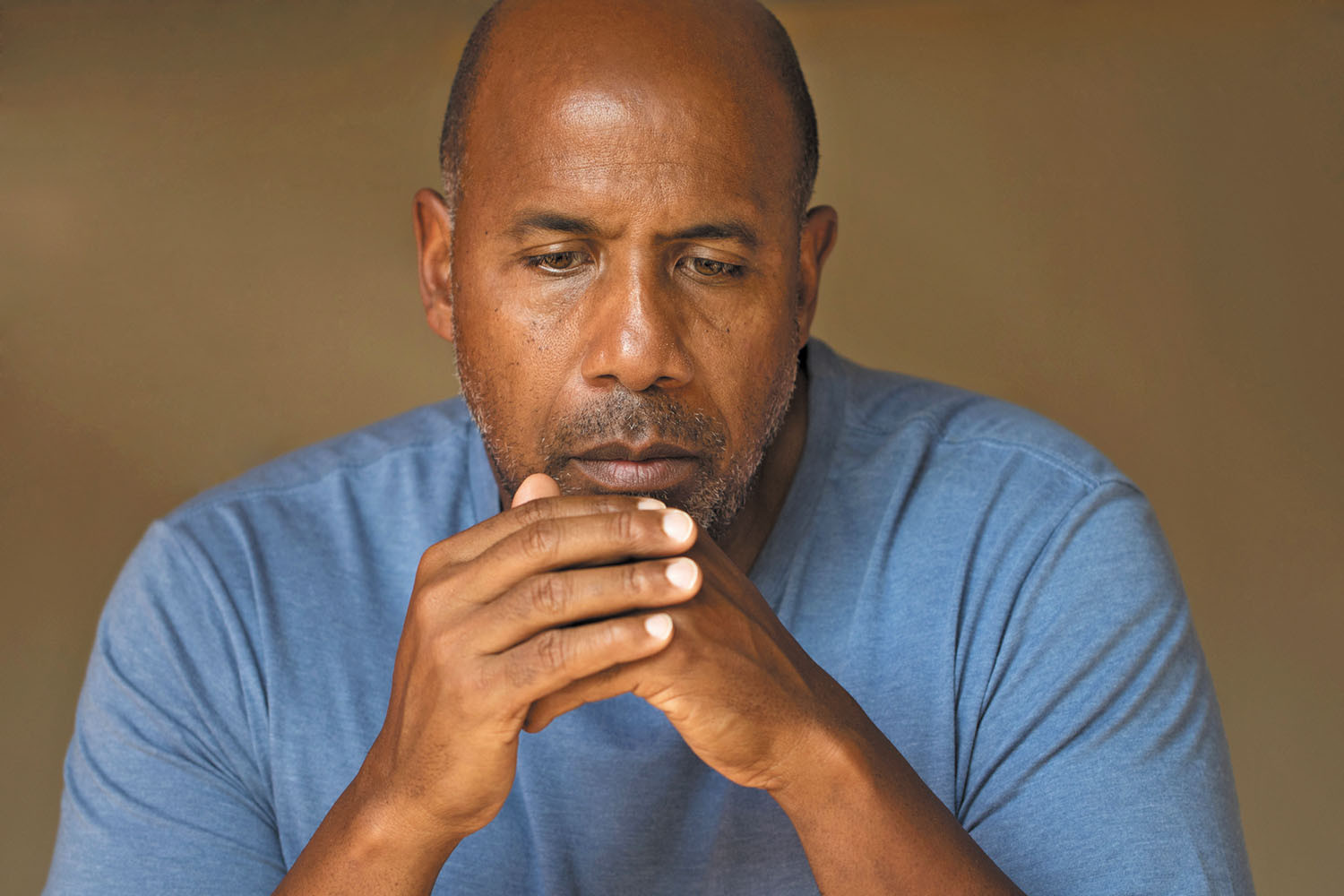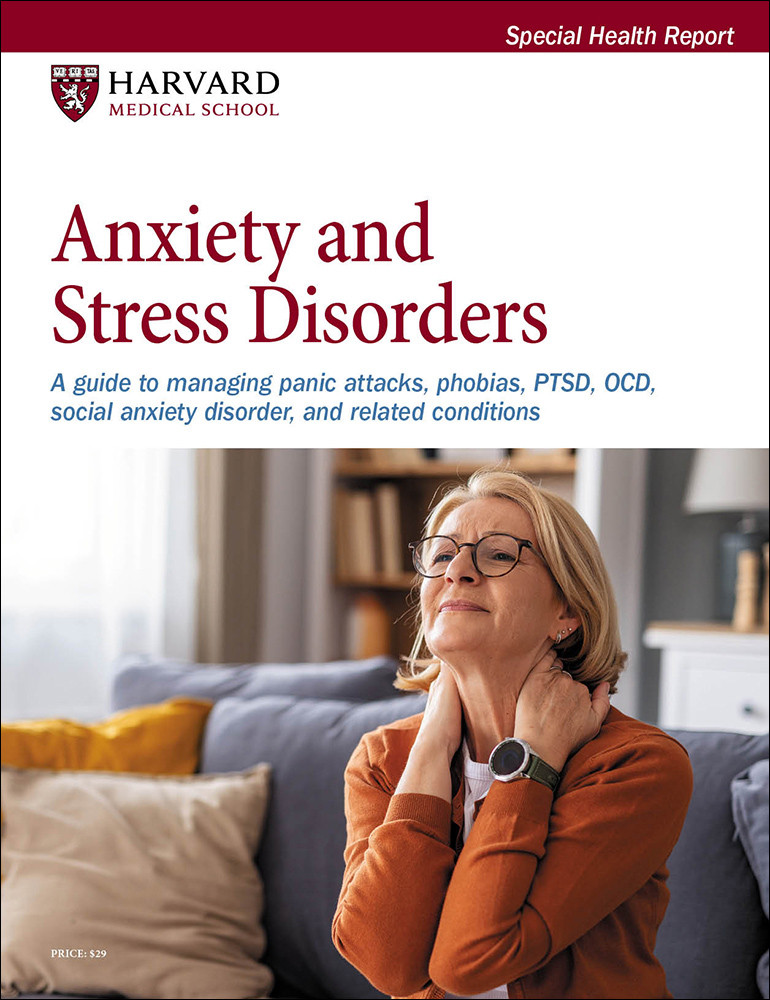When worry becomes a problem
Feeling afraid about life issues is common as you age, but if it takes over your life, you may have generalized anxiety disorder (GAD).

Image: © pixelheadphoto/Thinkstock
Everyone feels afraid or worried at times, but if these feelings begin to take over your life, then you may have crossed over into generalized anxiety disorder (GAD), which is the most common anxiety disorder among older adults, according to the Anxiety and Depression Association of America (ADAA).
"The issue with many older men is they often just endure the discomfort of GAD, or think it's normal, and do not talk about the problem," says Dr. David Mischoulon, director of the Depression Clinical and Research Program at -Harvard-affiliated Massachusetts General Hospital. "However, left alone to manifest, GAD may lead to serious health problems, such as high blood pressure, depression, and addictive behavior like excessive drinking."
GAD symptoms
GAD is defined as feeling anxious, fearful, or worried about multiple unrelated events or activities every day for at least six months. People with GAD constantly anticipate disaster and are overly concerned about issues like health, money, and family, even when there is no apparent reason for concern.
GAD tends to run in families and may be something you have always dealt with, but it also can be triggered by sudden changes, says Dr. Mischoulon. For instance, the death of a spouse or friend may make you feel vulnerable about being alone.
A minor health issue might cause anxiety about serious problems later. GAD also can keep you from engaging in a healthy lifestyle — you may refrain from any exercise for fear of injury, or avoid social outings.
One of the main issues with GAD is that men have trouble acknowledging it as a problem. Many believe it's natural to worry more about life issues as they age, and often they can function well enough with a moderate level of anxiety. They even may rationalize their constant worrying by believing it prevents bad things from happening. This may explain why only about 43% of GAD sufferers get treatment, says the ADAA.
The first step to dealing with GAD is to acknowledge you have it. "Many men understand what's causing their fear and worry, but often don't want to face it," says Dr. Mischoulon.
Other times, the source is not clear. If you suspect your worrying is excessive, consult with your doctor. He or she can determine if it may be related to another health issue, and if not, refer you to a psychologist or therapist for further evaluation, diagnosis, and treatment.
Generalized anxiety disorder and cancer riskA study presented in 2016 by researchers in England looked at more than 7,000 men over a 15-year period and found that those who were diagnosed with generalized anxiety disorder (GAD) were twice as likely to die from cancer as men without the condition. The researchers noted that this was only an association, but they added that people with GAD and other anxiety disorders often deal with their constant fear by adopting unhealthy behaviors, like smoking and excessive drinking, that may raise their cancer risk. |
Seeking help
Cognitive behavioral therapy (CBT) and medication are the standard ways to treat and manage GAD. With CBT, a psychologist or therapist works with you to uncover past experiences that may be the source of your anxiety.
Next, he or she explores negative thinking patterns that trigger your feelings of worry and helps you develop strategies to limit destructive thoughts and reinforce positive ones when anxiety occurs. Anti-anxiety medication is also used to help increase certain brain chemicals that are associated with a person's ability to relax and feel calm.
The type of treatment that is tried first is often guided by how long your fear or worry likely will last. For example, if it is related to some specific situations, such as a recent move to a new neighborhood or struggling to pay off a mortgage or other debt, then CBT alone would be a reasonable first step. If the source is more long-term, like a chronic illness or other health issue, medication is often prescribed along with CBT.
Lifestyle approaches are sometimes added to a person's treatment to help alleviate GAD. These might include exercise, mindfulness meditation, art therapy, or expressive writing (in which you write about your fears and worries).
When it comes to GAD, you should never feel pressured to "tough it out" and expect it to go away on its own, says Dr. Mischoulon. "GAD can worsen and lead to more complicated problems, and they certainly reduce quality of life. For older men, the right treatment can help them to maximize their golden years."
Disclaimer:
As a service to our readers, Harvard Health Publishing provides access to our library of archived content. Please note the date of last review or update on all articles.
No content on this site, regardless of date, should ever be used as a substitute for direct medical advice from your doctor or other qualified clinician.
















